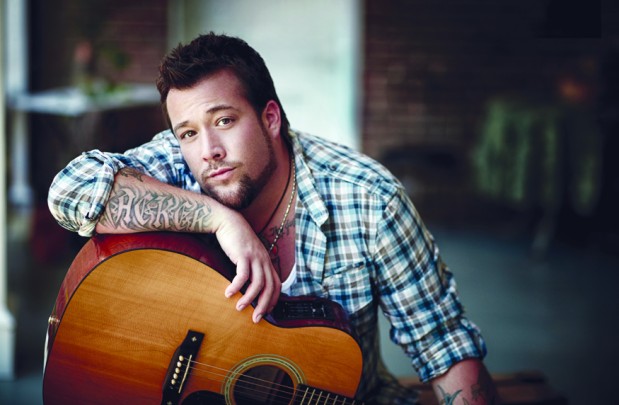Videos by American Songwriter
Uncle Kracker is no stranger to country music, but he’s never sounded quite as twangy as he does on Midnight Special. We talked with the Detroit native about working with Sugar Hill Records, touring the country with Kenny Chesney, and recording his new album in Al Capone’s hideout.
Signing with a roots label like Sugar Hill Records puts you on the same roster as Wanda Jackson and Don Williams. That much be interesting company.
It is, and going with Sugar Hill wasn’t a hard decision to make. Just googling their label and looking up their roster… it made a lot of sense. It looked like they cared. They let you do what you wanna do, and make the records you wanna make. It wasn’t a tough decision to go with them.
You’ve had some hits on the country charts, including a duet with Kenny Chesey, but this is the first time you’ve recorded a genuine country album. What pushed you in that direction?
Well, this is the first time I dove into any record without anybody telling me what to do. I just went in there and made the record I always wanted to make. Nobody was telling me things like “This won’t work,” or, “Why don’t you try this other thing instead?” Just being able to dive in and make the record I wanted to make… I came out of that experience with this, which is the best thing I’ve done.
Did recording a different kind of music require a different kind of songwriting approach?
I just focused on sitting down and writing. I’ve always gone into a studio and built a song out of a lot of different tracks, but the main thing I wanted to keep in mind [for Midnight Special] was that if you couldn’t play the song with just one acoustic guitar and one voice, then it wasn’t worth a fuck.
It sounds like these songs must’ve been easy to demo beforehand.
Yeah, I’ve got tons of acoustic demos. We’d just flip through them and see which one we wanted to cut. We wound up cutting 15 or 18 in just a matter of three or four days. Going in, it was such a different approach for me. A long time ago, we started off making rap records, and we’d build the songs in the studio with samplers, keyboards, drum machines, and all kinds of stuff like that. You’d layer and layer to make something sound better. With this record, it was a conscious decision to make sure the songs could sound good without those layers.
18 songs in four days? Really?
18 in four days. It was really cool. there was a lot of sorting and separating after that, with overdubs and whatnot, but even the roughs sounded beautiful.
You recorded at The Castle in Franklin, Tennessee. That’s such an interesting-looking building. What’s it like?
You know, they kept telling me it was haunted, and people wouldn’t go into certain places in the studio because of it. I guess a long time ago, the Castle was a house that Al Capone would use as a hideout. It’s a very cool place to cut some songs. It was cool and creepy, and I don’t mind a little creepiness.
Some Detroit-based musicians make a big deal out of recording their albums in their hometown. Why did you come down to the Nashville area?
I chose to record down there because Keith Stegall was producing the record, and I wanted him to be comfortable. When you hand over the reigns to someone, you want them to be comfortable, and I was already comfortable with what I had to do.
When you and Keith were preparing to record the album, did you use any other artists or albums as a reference point?
No, we didn’t do that. I wish we did! But everything just took shape on its own, and that’s what was so cool about the record. Not having a plan, just doing what felt natural and comfortable. We didn’t wanna force anything. I didn’t wanna go in there and purposely try to sound like someone else. I wanted it to sound like the way it was gonna sound.
“It is what it is,” to quote one of your songs.
Ha! Yeah, pretty much.
Another one of the songs of this album talks about having a Zac Brown koozie wrapped around your beer. Are you a fan of much contemporary country music?
Yeah, I’m a big Zac fan, so it was nice to name-drop him. I love Jamey Johnson, too; people like him come around once in a lifetime. And I dig Randy Houser. It always sucks to sing after him.
Years ago, you joined Kenny Chesney on one of his summer tours. Was that your first look into the world of modern-day country?
It was a huge eye-opening experience. Kenny is great enough to be friendly and insightful and knowledgeable. It was great to see how he runs his ship. You always look at people like him, and you always try to learn as much as you can from that. Mainly what I learned is how to treat people. It’s all about the fans, and that’s what I gathered from that first tour with him. I remember showing up, watching him play, and thinking, “Man, I need to get my shit together.”














Leave a Reply
Only members can comment. Become a member. Already a member? Log in.